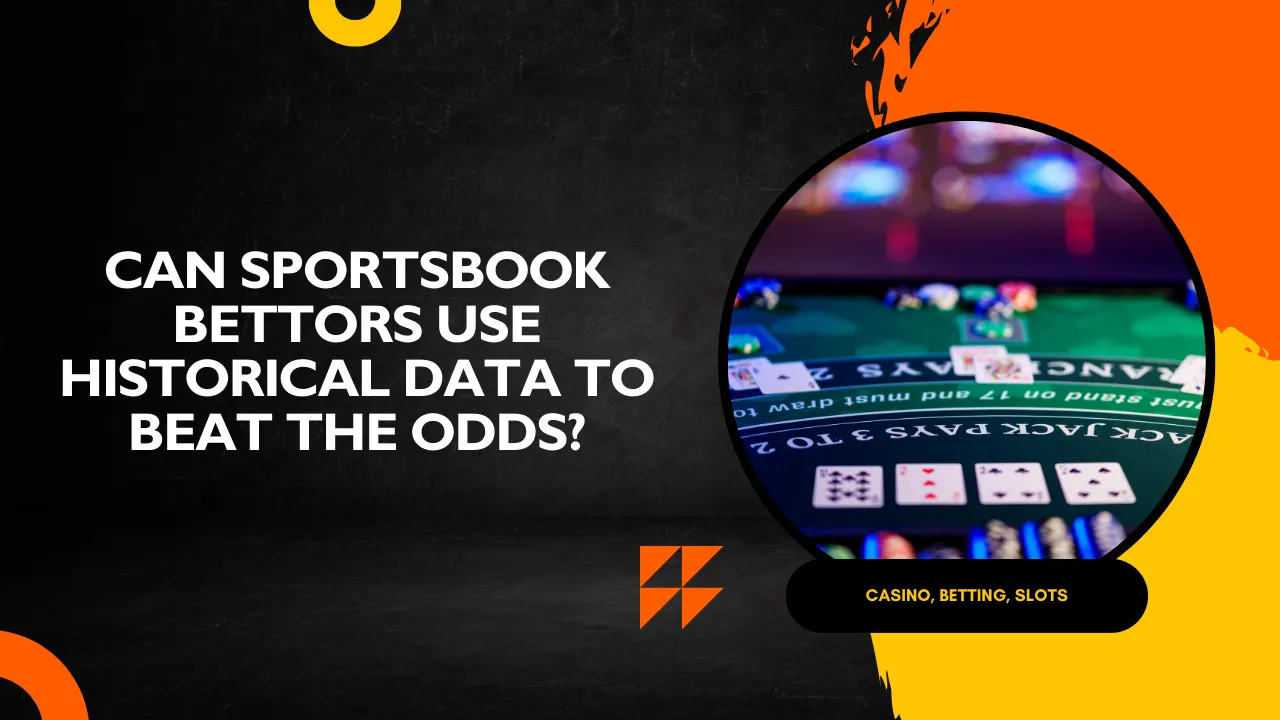Sports betting has always carried an air of unpredictability. The excitement of wagering on a game, race, or match lies partly in its uncertainty, but many bettors have long believed that past patterns can reveal future outcomes. This belief fuels the growing interest in data-driven betting, where statistics, historical results, and performance analytics become tools for decision-making.
The question remains, though: can historical data truly help bettors beat the odds, or is it just another layer of strategy that enhances the thrill without guaranteeing success? To answer this, we need to explore how data is used, its limitations, and what role it plays in both professional and recreational betting.
Why Historical Data Matters in Sports Betting
Historical data has always been a cornerstone of sports analysis. Coaches use it to refine tactics, commentators use it to tell stories, and bettors use it to guide wagers. Looking at past matchups, player performance trends, and even venue-specific outcomes can give bettors insights that raw intuition can’t.
Modern sportsbooks make this information even more accessible. With online platforms and brand new betting sites offering detailed stats, betting odds are now influenced as much by algorithms as they are by bookmakers’ expertise. For bettors, this creates an environment where data analysis feels not only useful but necessary to keep up.
The power of historical data lies in identifying patterns. For example, a football team that consistently struggles in away games or a tennis player who underperforms on clay courts can reveal betting opportunities. While these patterns don’t guarantee outcomes, they can tilt probabilities in a bettor’s favor if used strategically.
The Statistical Edge: What Bettors Actually Analyze
Data-driven bettors often dive deep into statistics beyond win-loss records. They may analyze factors such as average scoring margins, possession time, injury history, or even weather conditions that have historically influenced outcomes. Advanced analytics — like expected goals (xG) in football or player efficiency ratings in basketball — provide layers of insight that go beyond surface-level numbers.
Professional bettors often treat sports like stock markets. They look for inefficiencies in odds that arise when public sentiment doesn’t match statistical reality. For example, a team on a hot winning streak may be overvalued by casual bettors, but data might show that their performance metrics don’t support sustained success. In such cases, a disciplined bettor may place a wager against the public, trusting the numbers instead of the hype.
The Limitations of Historical Data
Despite its appeal, historical data is not a crystal ball. Sports are influenced by countless variables that cannot be fully captured in numbers. A key player’s sudden injury, changes in team dynamics, or unexpected weather conditions can dramatically alter outcomes.
One of the biggest pitfalls for bettors is overfitting — assuming that a past trend will continue indefinitely. Just because a basketball team has won its last ten home games doesn’t mean they are guaranteed to win the eleventh. Bookmakers know this too, and odds are often adjusted to account for these public biases.
Another limitation is the problem of sample size. A short run of games may look like a trend, but without a large enough dataset, conclusions can be misleading. Serious bettors often combine long-term historical data with real-time analysis to avoid falling into this trap.
Data, Technology, and the Rise of Predictive Models
Advancements in technology have made predictive modeling more accessible than ever. Machine learning and artificial intelligence can process enormous volumes of historical and real-time data, identifying subtle patterns that humans might overlook.
Some bettors are now experimenting with predictive models that simulate thousands of potential outcomes for a single game. While these tools don’t eliminate risk, they can highlight edges that traditional analysis might miss. Sportsbooks themselves use similar models to set lines, meaning the competition between bettor and bookmaker has become increasingly sophisticated.
The integration of live betting has also added another dimension. In-play wagers allow bettors to react to events as they unfold, combining historical trends with real-time momentum. For example, if historical data shows that a football team tends to fade in the second half, a bettor might wait for halftime to place a live bet against them.
The Human Factor: Psychology and Intuition
While data can sharpen strategy, the human element of betting can’t be ignored. Bettors bring their own biases, instincts, and emotional reactions to the table. Overconfidence in data can be as dangerous as ignoring it altogether.
Successful bettors often strike a balance between data-driven analysis and disciplined bankroll management. They use numbers to inform decisions but remain flexible enough to adjust when the unexpected happens — which, in sports, it often does.
It’s also worth remembering that sportsbooks are not trying to predict outcomes perfectly; their goal is to balance action on both sides of a bet. This creates opportunities for bettors who are disciplined and data-savvy, but the edge is often slim and requires patience.
Can Historical Data Really Beat the Odds?
The honest answer is: not always. Historical data improves the quality of decision-making, but it doesn’t eliminate uncertainty. Bettors who expect guaranteed wins from statistical analysis are likely to be disappointed.
However, used wisely, data can help bettors find value. It can highlight inefficiencies in odds, support long-term strategies, and reduce reliance on gut feelings. Professional bettors often build their success on these principles, treating betting as an investment rather than a gamble.
For recreational players, even if data doesn’t guarantee profits, it adds depth and enjoyment to the experience. Understanding why odds are set a certain way, or spotting a pattern in a team’s play, makes betting more engaging and intellectually rewarding.
Conclusion
Historical data is a powerful tool in sports betting, but it is not a magic formula. It provides context, identifies trends, and helps bettors make more informed decisions. Yet, the inherent unpredictability of sports means that no amount of past information can fully guarantee future results.
For those entering the world of data-driven betting, the key is balance: use statistics to gain insight, but recognize their limitations. The smartest bettors blend historical analysis with real-time adjustments, bankroll discipline, and a healthy respect for the uncertainty that makes sports so compelling.
At the end of the day, historical data may not always beat the odds, but it can certainly give bettors a clearer understanding of the game they’re playing.




